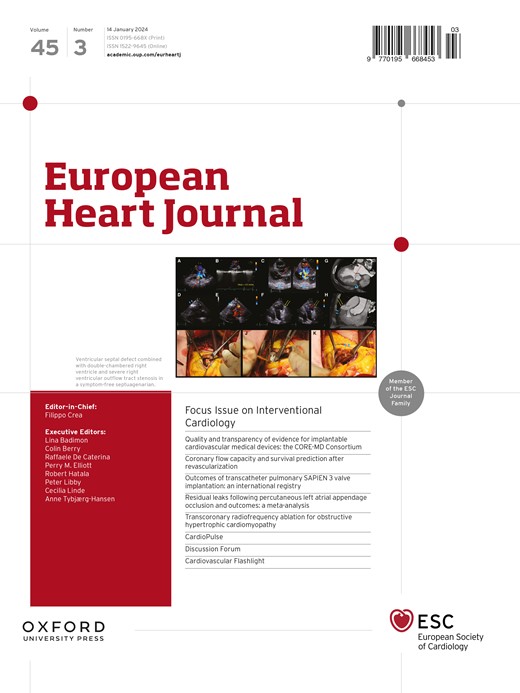Importance of basic science and research training for the future generation of cardiologists.
IF 35.6
1区 医学
Q1 CARDIAC & CARDIOVASCULAR SYSTEMS
引用次数: 0
Abstract
Advances in the battle against cardiovascular diseases depend upon continuously translating emerging scientific knowledge from preclinical studies and clinical trials into innovative and effective therapeutic strategies. Over the past three decades, molecular and cellular biology have undergone a profound transformation, and large-scale, single-cell, and multi-omics studies have enabled investigations on cardiac disease mechanisms with unprecedented precision. However, these rapid advancements have also contributed to a divergence between the needs and aspirations of basic researchers and those of clinical scientists and practicians, to the detriment of discovery science, precision medicine, and cardiovascular healthcare. The present document highlights the importance of education and training in overcoming the gap between discovery and clinical science, by promoting a common language aimed at designing more translationally relevant and impactful discovery science. To achieve this aim, multidisciplinary efforts will be required to better define learning objectives within training programmes, including education in discovery and clinical sciences, promotion of specific mentorship paths, collaborative research efforts, promotion of equality, diversity, and inclusion, and protection of research time and activity within academic, clinical, and research careers.基础科学和研究培训对未来一代心脏病专家的重要性。
心血管疾病防治的进展取决于不断将临床前研究和临床试验中的新兴科学知识转化为创新和有效的治疗策略。在过去的三十年里,分子和细胞生物学经历了深刻的转变,大规模、单细胞和多组学的研究使得对心脏病机制的研究达到了前所未有的精度。然而,这些快速的进步也导致了基础研究人员与临床科学家和医生的需求和愿望之间的分歧,从而损害了发现科学、精准医学和心血管保健。本文件强调了教育和培训在克服发现科学和临床科学之间的差距方面的重要性,通过促进旨在设计更具翻译相关性和影响力的发现科学的共同语言。为了实现这一目标,将需要多学科的努力来更好地定义培训计划中的学习目标,包括发现和临床科学的教育,促进特定的指导路径,合作研究努力,促进平等,多样性和包容性,以及保护学术,临床和研究职业中的研究时间和活动。
本文章由计算机程序翻译,如有差异,请以英文原文为准。
求助全文
约1分钟内获得全文
求助全文
来源期刊

European Heart Journal
医学-心血管系统
CiteScore
39.30
自引率
6.90%
发文量
3942
审稿时长
1 months
期刊介绍:
The European Heart Journal is a renowned international journal that focuses on cardiovascular medicine. It is published weekly and is the official journal of the European Society of Cardiology. This peer-reviewed journal is committed to publishing high-quality clinical and scientific material pertaining to all aspects of cardiovascular medicine. It covers a diverse range of topics including research findings, technical evaluations, and reviews. Moreover, the journal serves as a platform for the exchange of information and discussions on various aspects of cardiovascular medicine, including educational matters.
In addition to original papers on cardiovascular medicine and surgery, the European Heart Journal also presents reviews, clinical perspectives, ESC Guidelines, and editorial articles that highlight recent advancements in cardiology. Additionally, the journal actively encourages readers to share their thoughts and opinions through correspondence.
 求助内容:
求助内容: 应助结果提醒方式:
应助结果提醒方式:


